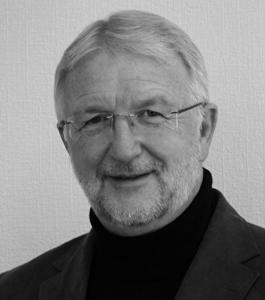Mar 4 2014
A British scientist whose work helped form the basis for flat-screen TVs, computers and mobile phone displays has won AkzoNobel's UK Science Award for 2014.
 Professor John Goodby
Professor John Goodby
Professor John Goodby, FRS, Chair of Materials Chemistry at the University of York, will officially receive the honor and a £50,000 prize during a ceremony being held at the Royal Society of Chemistry in London on March 5.
Having spent almost a decade of his 40-year career at Bell Laboratories in the US - home of seven Nobel Laureates - Professor Goodby is being recognized for the outstanding contributions he has made to materials chemistry in the field of liquid crystals and soft matter.
"I would like to pay tribute to all of my colleagues and students past and present, as well as my fellow academics at the University of York, who have made this scientific journey so exciting, memorable and enjoyable," he said.
"The relatively short time span between the invention of commercial LCDs in the 1970s and their current market dominance has required a huge effort by scientists and engineers from many disciplines, demonstrating the critical importance of multidisciplinary research."
Added AkzoNobel's Chief Scientist, Andrew Burgess: "I am delighted that we can once again recognize the wealth of science talent in the UK through this award. Professor Goodby is a hugely worthy recipient, with his work having made a great contribution to advances in liquid crystals and display technologies that people around the world now take for granted."
President of the Royal Society of Chemistry and chair of the prize selection committee, Professor Lesley Yellowlees, commented: "I'm thrilled to be celebrating Professor Goodby's invaluable contributions to a technology that has a beneficial effect on everyday lives across the world. The field of liquid crystal chemistry is an excellent demonstration of the value of curiosity-driven research and, more than 125 years after they were first discovered by accident, it's fantastic to be recognizing Professor Goodby's role in what is now a billion-dollar industry."
The UK's Secretary of State for Business, Innovation and Skills, Rt Hon Vince Cable MP, also congratulated the 2014 winner: "Professor Goodby's achievements are testament to the fact that the UK has many of the world's best scientists. We have led the way developing technology that has transformed the way people live across the globe."
Scientists are constantly looking at how the application of liquid crystals can be expanded, with current research expected to lead to applications in sensors and the medical field. More than 100 clinical trials are in progress worldwide testing the use of liquid crystals as vectors to translate DNA across membrane walls in the human body.
AkzoNobel is a leading global paints and coatings company and a major producer of specialty chemicals. We supply industries and consumers worldwide with innovative products and are passionate about developing sustainable answers for our customers. Our portfolio includes well-known brands such as Dulux, Sikkens, International and Eka. Headquartered in Amsterdam, the Netherlands, we are consistently ranked as one of the leaders in the area of sustainability. With operations in more than 80 countries, our 50,000 people around the world are committed to delivering leading products and technologies to meet the growing demands of our fast-changing world.
Source: http://www.akzonobel.com/